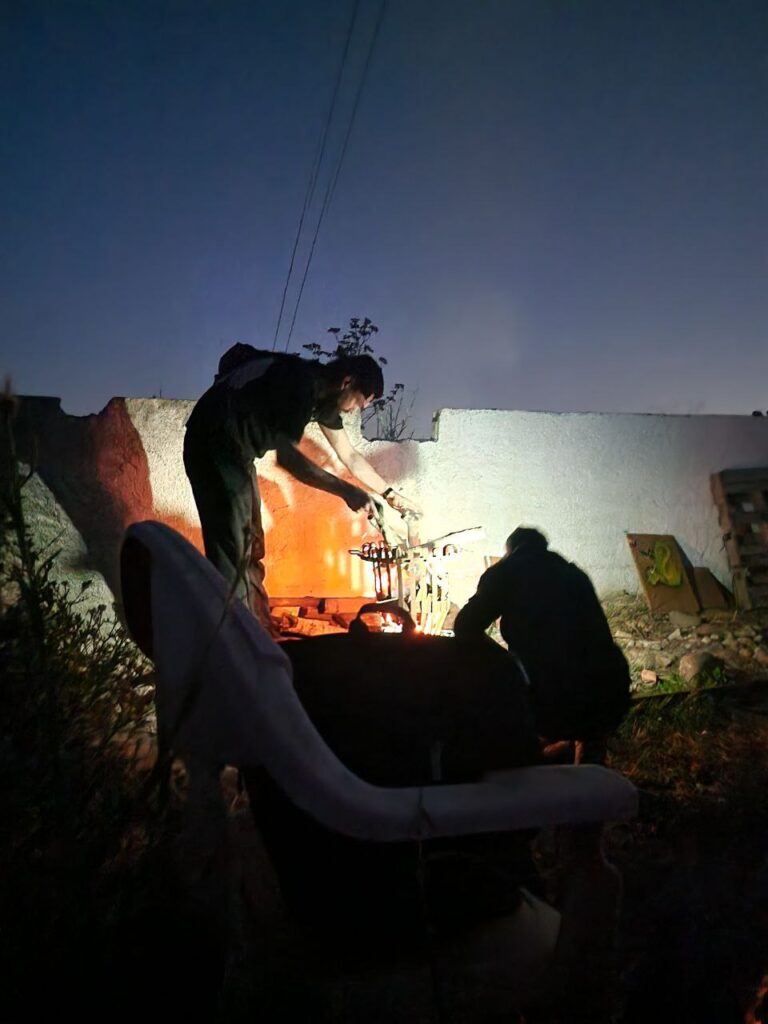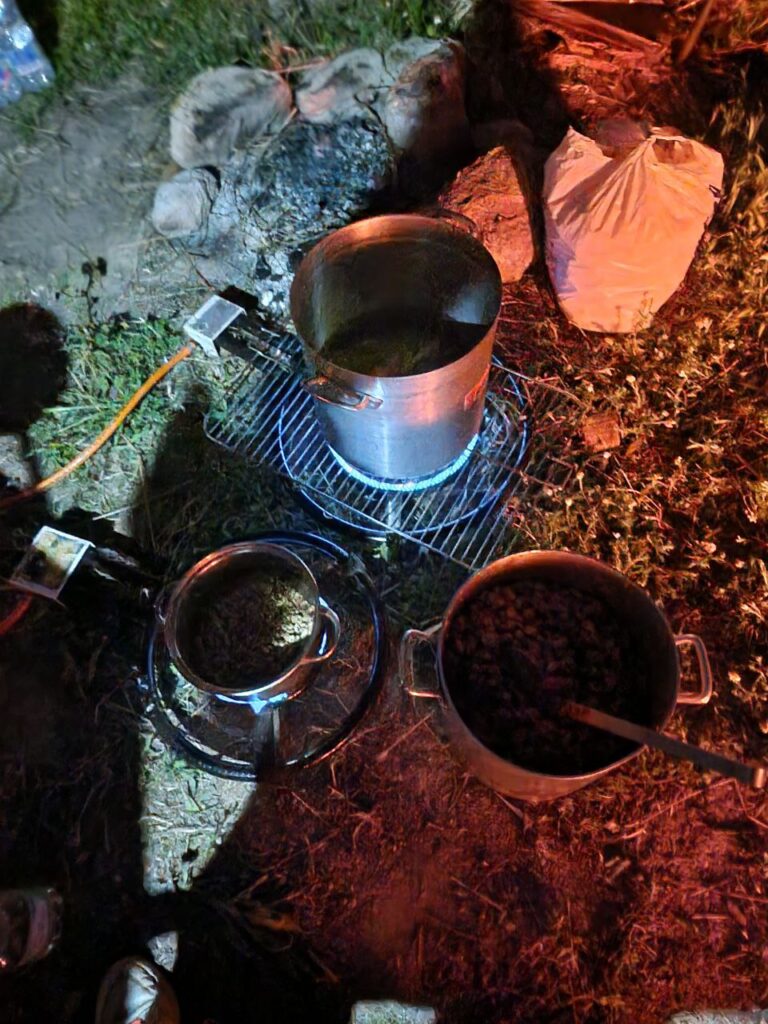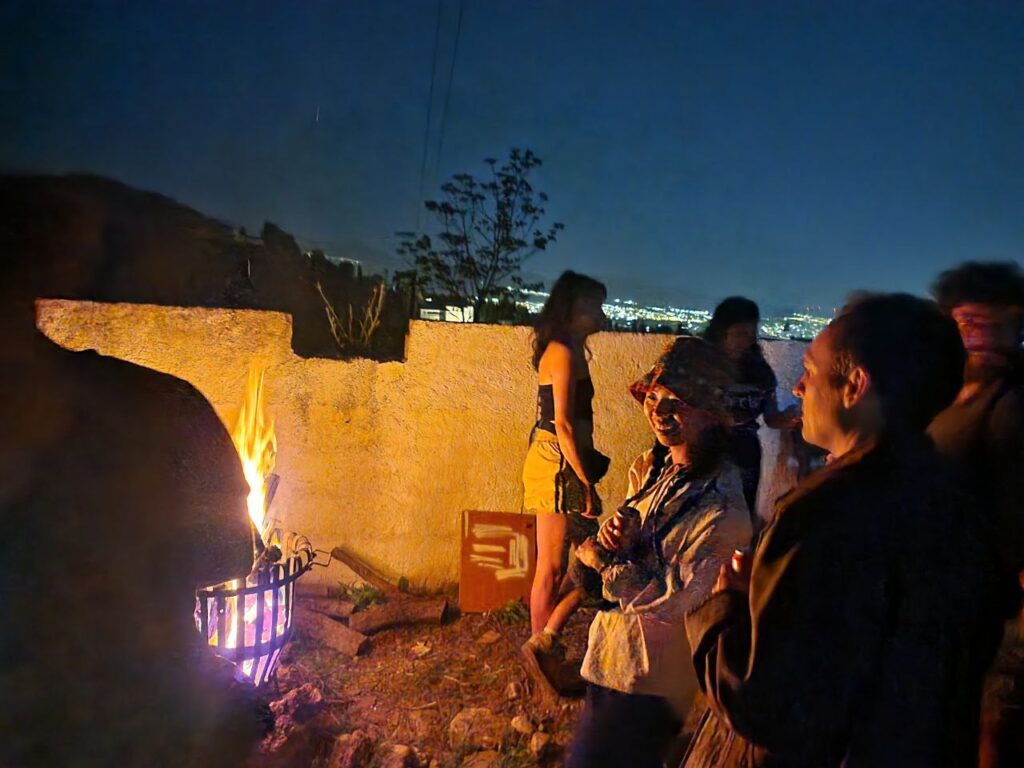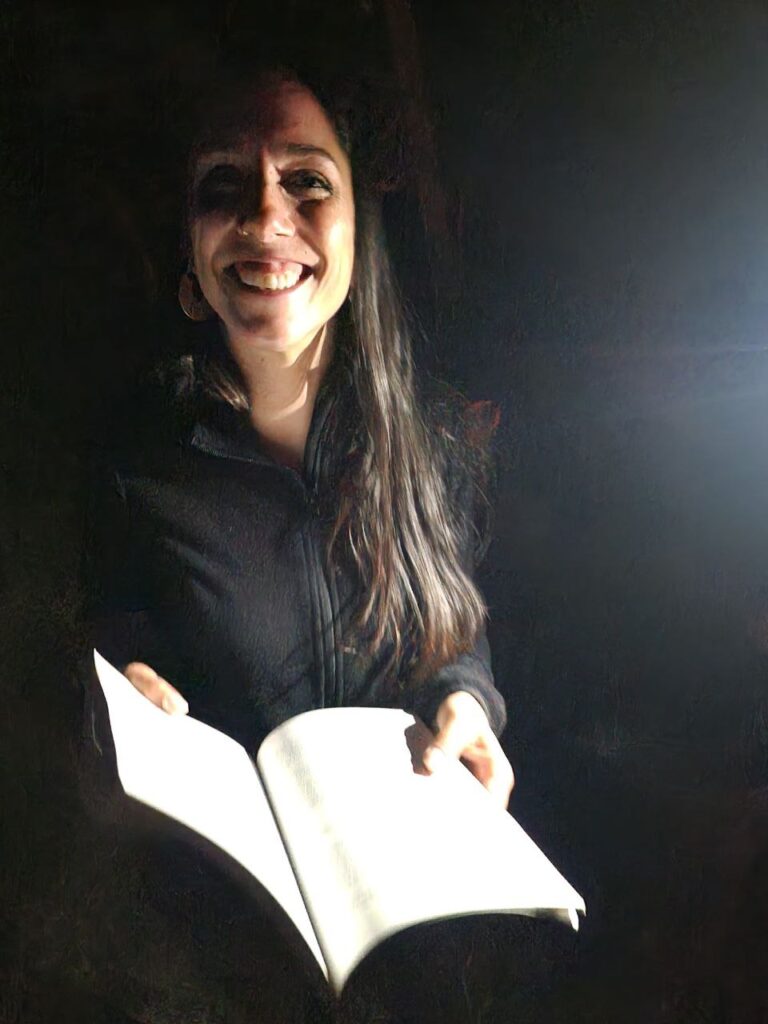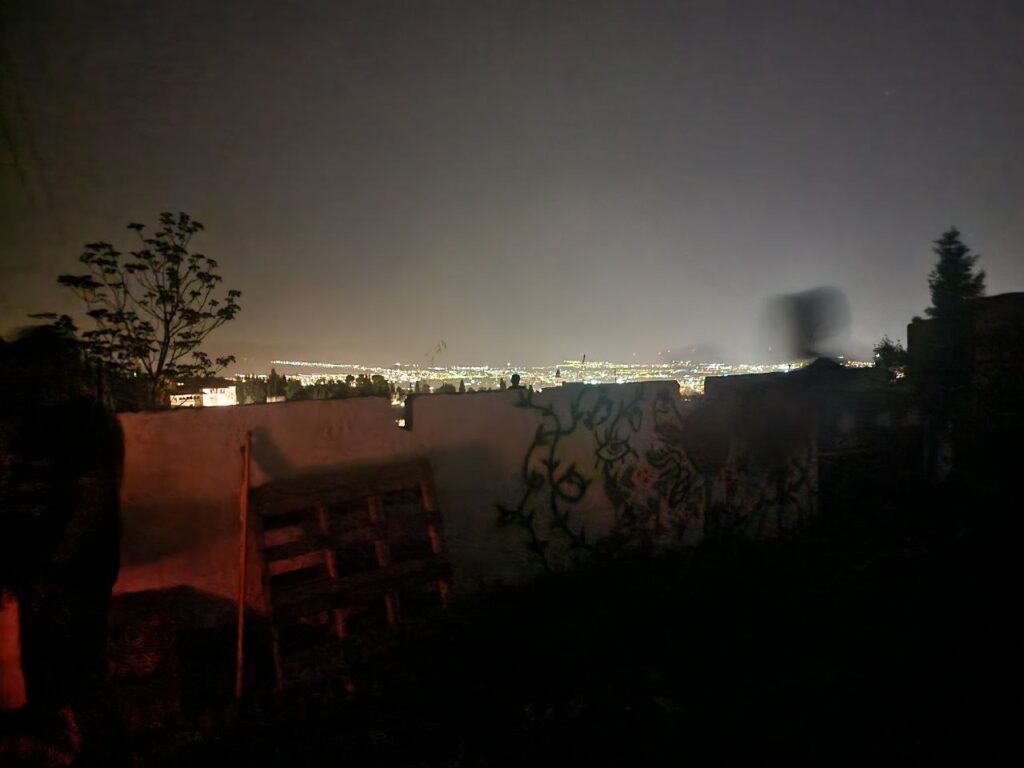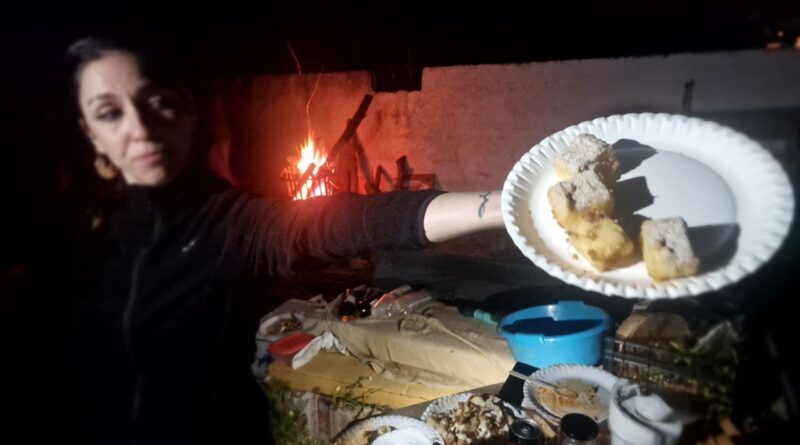Cocina participativa, lectura del diario / recetario de Buenaventura Durruti de la Guerra Civil española
for english please scroll down ↓
en colaboración con COURIC DESIGNS y JAN MAROT,
CNT-AIT GRANADA & NIÑXS DE LA NOCHE en las cuevas del sacromonte
realizada junto con les compañeres
Fran. Husein. Tamara.
Cocina participativa, lectura
del diario / recetario de Buenaventura Durruti
de la Guerra Civil española recopilado por Nadine a partir de sus notas y memorias después de la guerra, que formaba parte de Columna Durruti
MENÚ TODO VEGANO
calçots a la brasa . salsa romesco
habas verdes estofadas . cebolla . tomate
coliflor . alioli . chile ajo crujiente aceite
leche frita . canela . azúcar glacé
hogazas de pan, suficientes para una brigada de milicianes anarquistas
Una visita guiada por la historia y el entorno social de los barrios del Albaicín y Sacromonte. Hablamos de la historia del movimiento anarquista, de la clase obrera que vivió y trabajó allí, se organizó y combatió ferozmente a las tropas fascistas franquistas con sólo unas pocas armas y artefactos explosivos de fabricación propia. Y los Niños de la Noche, que fueron cruciales para ayudar a los anarquistas a huir de la ciudad ocupada de Granada, ya que en los primeros días después de tomar brutalmente la ciudad los fascistas ejecutaron a más de 3000 hombres y mujeres. Y por supuesto, la resistencia armada continuó. Esperando la llegada de la anarquista Columna Maroto, que nunca llegó a Granada. Y por los Hermanos Quero hasta bien entrados los años 60.
„Con el fascismo no se discute. Se destruye.“
Buenaventura Durruti
21:30h Centro Social Cuevas Niñxs de la Noche
Después de la caminata cuesta arriba, nos reunimos en las cuevas para hablar de Buenaventura Durruti, anécdotas de su vida y leer de su diario como recetario. También conocimos la historia de la elaboración del libro La Cocinera de Durruti de la mano del compañero Fran, que participó en la primera edición en castellano y de la mujer que lo escribió, Nadine, que escribió sus recuerdos de la guerra civil y la revolución española.
Cocinamos algunas de las recetas y escuchamos historias personales sacadas del libro de Nadine, sobre cuándo, dónde y en qué circunstancias fueron preparadas.
Participatory cooking, reading.
from the diary / recipe book by Buenaventura Durruti
of the Spanish Civil War compiled by Nadine from his notes and memoirs after the war, which was part of Columna Durruti
in collaboration with COURIC DESIGNS and JAN MAROT,
CNT-AIT GRANADA & NIÑXS DE LA NOCHE at the Sacromonte caves
performed together with comrades
Fran. Hussein. Tamara.
ALL VEGAN MENU
calçots on the grill. romesco sauce
green beans . onion . tomato
cauliflower. aioli. chili crispy garlic oil
fried milk . cinnamon . glacé sugar
loaves of bread, enough for a brigade of anarchist militiamen
We started the visit from…
Plaza Nueva at 7:00 p.m.
A guided tour of the history and social environment of the Albaicín and Sacromonte neighborhoods. We are talking about the history of the anarchist movement, of the working class that lived and worked there, organized and fiercely fought the Francoist fascist troops with only a few weapons and explosive devices of their own manufacture. And the Children of the Night, who were crucial in helping anarchists flee the occupied city of Granada, as in the first days after brutally taking the city the fascists executed more than 3,000 men and women. And of course, the armed resistance continued. Waiting for the arrival of the anarchist Columna Maroto, who never arrived in Granada. And for the Quero Brothers well into the 60s.
„Fascism is not discussed. It is destroyed.“
Beunaventura Durruti
21:30h Social Center Caves Children of the Night
After the uphill hike, we gather in the caves to talk about Buenaventura Durruti, anecdotes from his life and read from his diary as a recipe book. We also learned about the history of the elaboration of the book The Cook of Durruti by comrade Fran, who participated in the first edition in Spanish and the woman who wrote it, Nadine, who wrote her memories of the civil war and the Spanish revolution.
We cooked some of the recipes and heard personal stories from Nadine’s book about when, where and under what circumstances they were prepared.
